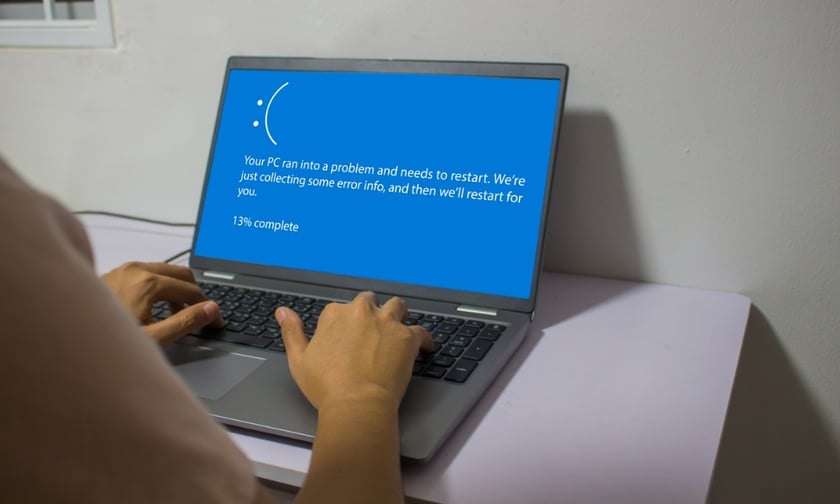

The recent outage triggered by a faulty CrowdStrike Falcon Sensor update, known as the CrowdOut Event, demonstrated the vulnerabilities associated with Single Point of Failure (SPoF) technologies, according to CyberCube.
The problem began with a software update from CrowdStrike, intended to enhance security but containing a defective kernel driver. This error led to system crashes across various Windows operating systems, resulting in the “Blue Screen of Death” (BSoD), which halted operations to prevent further damage. The report noted this shows how disruptions in SPoF technologies can have far-reaching effects on the global digital economy.
The outage has significantly impacted businesses using CrowdStrike Falcon on Windows systems, including desktops and servers. Major sectors affected include finance, healthcare, and transportation. Organizations relying on CrowdStrike, as well as those using managed security service providers (MSSPs) that deploy Falcon, are also experiencing disruptions. CyberCube’s SPoF Intelligence tool highlighted that large enterprises in manufacturing, IT, healthcare, and finance face considerable exposure. Other sectors affected include aviation, banking, and retail.
CyberCube’s analysis classifies the outage as a system failure or business interruption event. Companies must address the issue by rolling back the faulty update and applying patches, a process that requires specialized IT knowledge, the report noted. Organizations with substantial IT resources may recover faster, while smaller firms may face delays due to limited IT support and contingency plans.
Laila Khudairi, departmental head of cyber and enterprise risk at Tokio Marine Kiln, highlighted the significance of this event: “This is the most widespread global IT outage we have seen in 20 years of underwriting cyber risk. The impact has been severe and across multiple sectors. Cybercriminals are using the outage to attempt phishing attacks via email and SMS. We urge our clients, and anyone affected, to remain vigilant and scrutinize suspicious emails or those which request personal details.”
Khudairi also noted that despite the incident’s challenges, automatic updates have previously provided critical defences against malware. “We continue to work with our clients to assess their vulnerabilities and monitor their exposures through our scanning tools to support them against future attacks,” she said. “While the incident raises questions about how well tested patch updates are before a mass roll-out like this, previous automatic updates have provided a timely and vital line of defence for businesses to prevent malware attacks.”
The CrowdOut Event serves as a reminder of the need for robust risk management strategies to mitigate such disruptions.
Do you have any thoughts about this story? Let us know in the comments below.
